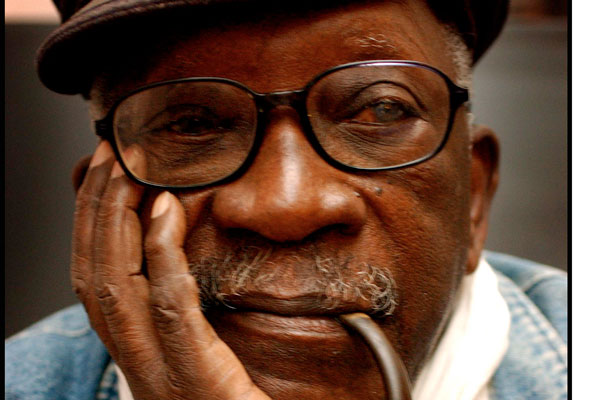
THE late Senegalese filmmaker Ousmane Sembène, is set to be celebrated across Africa and the Diaspora from June 9 to 11 through the free screening of his award-winning documentary, Sembène! as part of the Sembène across Africa project.
BY ARTS REPORTER
The screening in Harare has been scheduled for TV Yangu Studios at corner First Street and Jason Moyo Avenue at 3pm.

Project director, Jason Silverman of Galle Ceddo Projects, said in a statement the initiative is being done in conjunction with several African institutions as a three-day series of free public screenings, house parties and free streaming of the award-winning documentary film that celebrates the life and work of the “father of African cinema.”
Silverman said the screening of film which made it into the seven best-of-2015 lists, including a top-ten-of-2015 notice from New York magazine, has been confirmed in over 30 countries by Monday this week.
“All screenings are provided free of charge. Funding is provided from the Ford Foundation and the Sundance Institute, and through grassroots efforts,” Silverman said.
The screenings will also feature post-film discussions while seminars will be held in Dakar, Senegal, Ouagadougo in Burkina Faso and Conkary in Guinea.
“The project is motivated by Sembene’s desire — unfulfilled in his lifetime after 50 years of focused work — to return African stories to the African people,” Silverman said, adding that this was part of decriminalising African culture.
- Chamisa under fire over US$120K donation
- Mavhunga puts DeMbare into Chibuku quarterfinals
- Pension funds bet on Cabora Bassa oilfields
- Councils defy govt fire tender directive
Keep Reading
He said starting with his first film, Borom Sarret (1962), Sembène set out to use movies as what he called “an evening school” for Africans.
“His works revisited history from African perspectives, called out corrupt leaders and celebrated what he called the heroes of the everyday. Sembène spent 50 years making films and writing books in a tireless and forceful attempt to reorient Africans after generations of colonisation,” he said.
“Unfortunately, 10 years after his death, Sembène — a true hero of cinema and of self-empowerment — remains unknown to most young Africans.”
The documentary film’s director and Sembène’s official biographer, Samba Gadjigo, said the project is meant to inspire those working for African progress and to inject Sembène’s legacy of engaged, empowering and progress-minded storytelling back into the African consciousness.











